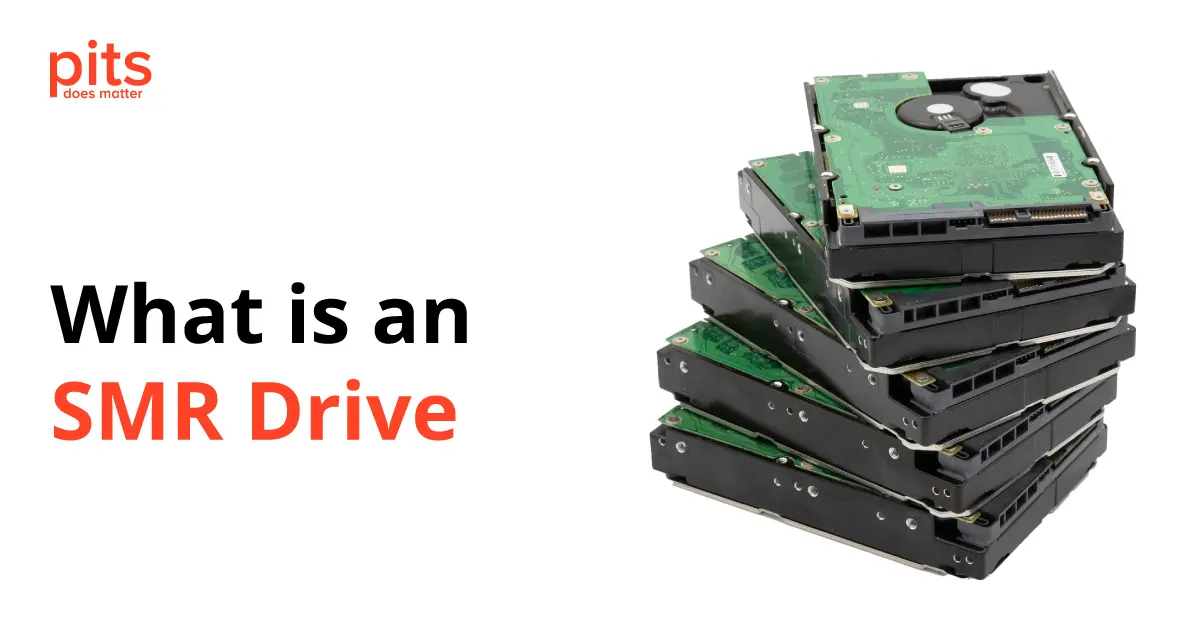In the world of data storage, technology continues to evolve at a rapid pace. One such innovation that has gained attention in recent years is SMR drives, also known as Shingled Magnetic Recording drives. These drives offer higher storage densities and increased capacity compared to their predecessors. However, like any technology, SMR drives come with their own set of advantages and disadvantages. In this article, we will delve into what SMR drives are, how they work, and explore their pros and cons.
Understanding SMR Drives
Shingled Magnetic Recording (SMR) is a technology used in hard disk drives (HDDs) for storing data. SMR drives employ a unique writing method where the tracks partially overlap, resembling the shingles on a roof. This overlapping allows for higher storage densities and increased capacity compared to conventional magnetic recording (CMR) or perpendicular magnetic recording (PMR) technologies.
An SMR drive works similarly to a traditional HDD, but with a few key differences in the writing process. In a typical HDD, data is written sequentially on individual tracks using a writing head.
However, in an SMR drive, the writing process involves partially overlapping tracks. This overlapping arrangement allows for tighter packing of data, resulting in higher storage densities.

When new data needs to be written, the drive needs to perform a two-step process. First, the existing data on the overlapping tracks must be rewritten to neighboring tracks.
Then, the new data can be written in the newly cleared space. This process, known as “rewriting,” can impact the performance of SMR drives, especially when dealing with random write operations.
Advantages of SMR Drives
- Higher Storage Densities: SMR drives offer significantly higher storage densities compared to CMR technology. This increased density allows for greater storage capacity within the same physical form factor, making SMR drives ideal for applications that require storing large amounts of data.
- Cost-Effective Storage: SMR drives can provide a cost-effective solution for organizations that need to store massive amounts of data. The higher storage densities allow for greater capacity per drive, reducing the overall number of drives required and potentially lowering costs.
- Compatibility: SMR drives are designed to be compatible with existing infrastructure, making it easier for organizations to adopt the technology without requiring significant changes to their storage systems.
Disadvantages of SMR Drives
- Performance Challenges: While SMR drives offer higher storage densities, they can experience performance challenges, especially during random write operations. The two-step writing process and the need for rewriting existing data can result in slower write speeds and increased latency compared to CMR drives.
- Limited Random Write Performance: SMR drives are not well-suited for workloads that involve frequent random write operations. The rewriting process required for data updates can lead to reduced performance and longer response times in such scenarios.
- Lower Endurance: SMR drives may have lower endurance compared to CMR drives. The constant rewriting process, coupled with the increased complexity of managing overlapping tracks, can impact the overall lifespan of the drive.

SMR drives, or Shingled Magnetic Recording drives, offer higher storage densities and increased capacity compared to conventional magnetic recording technology.
These drives can be a cost-effective solution for organizations that require large-scale data storage. However, they also come with performance challenges, particularly in random write operations, and may have lower endurance compared to CMR drives.
Understanding the pros and cons of SMR drives is essential for organizations when considering their data storage needs. As technology continues to advance, it is crucial to evaluate different storage options based on specific requirements.
While SMR drives have their advantages, solid-state drives (SSDs) should also be considered for their superior performance and reliability, especially when dealing with workloads that involve heavy random write operations. Ultimately, the choice between SMR drives and other storage solutions depends on the specific use case and the balance between cost, performance, and data storage needs.
Our Data Recovery Services for SMR Drives
PITS Global Data Recovery Services is a renowned company that offers reliable data recovery solutions for both CMR and SMR drives. With our team of experienced technicians and state-of-the-art tools, we specialize in efficiently retrieving data from even the most complex and difficult cases.
At PITS, our team of highly skilled engineers is equipped with the necessary expertise to tackle various data loss scenarios. Whether your drive has encountered physical damage, mechanical failure, or logical errors, you can trust our team to provide the assistance you need.
Advantages of Our Using Services
PITS Global Data Recovery Services acknowledges the importance of your valuable hard drive data and recognizes the potential consequences of data loss on both personal and business fronts. Therefore, we provide reliable and swift data recovery services for CMR and SMR drives. Our committed team operates ceaselessly to guarantee the prompt and efficient recovery of your data.
Should you encounter data loss on your CMR or SMR drive, do not hesitate to contact PITS Global Data Recovery Services without delay. We are ready to collaborate with you, tailoring a personalized data recovery strategy that caters to your distinct needs and preferences.
Frequently Asked Questions
What is an SMR drive, and how does it differ from traditional hard drives?
An SMR (Shingled Magnetic Recording) drive is a type of hard disk drive that utilizes a unique writing method where the tracks partially overlap, resembling the shingles on a roof. This overlapping arrangement allows for higher storage densities compared to traditional hard drives, enabling increased capacity within the same physical form factor.
What are the advantages of SMR drives?
SMR drives offer higher storage densities, allowing for greater capacity and cost-effective storage solutions, particularly for organizations dealing with large amounts of data. These drives are also designed to be compatible with existing infrastructure, making it easier to adopt the technology without significant changes to storage systems.
Are SMR drives the best choice for all storage needs?
SMR drives are well-suited for scenarios where high storage capacity is a priority and random write operations are infrequent. However, it’s important to consider the specific requirements of your storage needs. Solid-state drives (SSDs) may offer superior performance and reliability, particularly for workloads involving heavy random write operations. The choice between SMR drives and other storage solutions depends on factors such as cost, performance, and data storage requirements.
Are there any limitations or downsides to SMR drives?
SMR drives have certain limitations that should be considered. Due to the rewriting process and the management of overlapping tracks, SMR drives may have lower endurance compared to traditional hard drives. Additionally, the performance of SMR drives can be impacted during random write operations, potentially leading to reduced performance and longer response times.
How do SMR drives perform in terms of write operations?
While SMR drives excel in sequential write operations, they can face challenges with random write operations. The two-step writing process and the need for rewriting existing data can result in slower write speeds and increased latency compared to traditional hard drives. As a result, SMR drives may not be suitable for workloads that involve frequent random write operations.
Request Help
"*" indicates required fields
